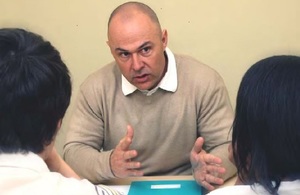Environmental business initiative receives £120,000 funding boost
Business support organisation The Water Hub has received a total of £120,000 funding that will help it continue to back innovative solutions to local environmental challenges.
The funding has come from the North East Local Enterprise Partnership and partners, including the Environment Agency, Durham County Council, Durham University, and Northumbrian Water Ltd; allowing the initiative to establish a business development plan for how it may continue to offer support for research and innovation in the region.
By bringing together the water industry and local businesses on environmental projects, The Water Hub has provided direct support to 54 organisations through collaborations, research development, and business support.
It is estimated that this work has resulted in a boost of more than £1.7 million for the local economy.
George Gerring of The Water Hub and Senior Operations Officer for the Environment Agency, said:
We are so excited to be entering phase 2 of our vision, under the funding and development guidance of the Environment Agency, to help broker and initiate key relationships between the environmental and business sectors.
We are in a healthy position to scale and grow The Water Hub into establishing the organisation as a national and international asset. We have proven that the projects we help instigate produce a direct return on investment, which should be our magnet towards attracting future investment to the region.
This is a global calling card to show investors that the North East of England is open for business, and to demonstrate what the region has to offer as a vibrant and ambitious place to develop new water and environmentally centred products.
In these uncertain times during the global pandemic we are also wanting to show our support towards SMEs and provide a positive platform for the region to build upon.
Richard Baker, Strategy and Policy Director at the North East Local Enterprise Partnership, said:
The Water Hub has been an excellent initiative to draw together partners, businesses and communities in the drive to develop solutions to key water and environmental challenges and has created an excellent collaborative model which has the potential to position the North East as a leading region for this work.
It’s a pleasure to be a partner to the Environment Agency, water sector and universities involved and look forward to the next stage of our work together.
As one of a group of natural assets, water is identified in the Strategic Economic Plan and Local Industrial Strategy as an important economic opportunity for our region, not least as the world seeks responses to Climate Change. We’re looking forward to continuing this partnership as this crucial work continues.
During a recent survey of businesses supported by The Water Hub, one SME, Jack Shuttleworth, Project Manager for SEL Environmental Ltd, said:
The Water Hub has helped us to secure approximately £200,000 of new business, however the potential value is huge as collaborating with The Water Hub has allowed us to get in front of huge businesses.
For further information about The Water Hub please visit www.thewaterhub.org.uk and follow them on Twitter @hub_water

